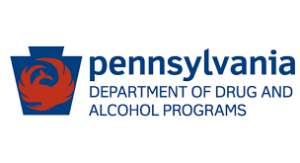PA Health Policy Update for the Week of December 6-10
The following is an update of selected state health policy developments in Pennsylvania for the week of December 6-10, 2021. (Some of the language used below is taken directly from state documents.)
 General Assembly
General Assembly
The Senate Democratic Policy Committee held an informational hearing this week on substance use disorder treatment facilities. The hearing was co-hosted by senators Schwank, Tartaglione, and Muth. Panelists included individuals affected by the addiction crisis, treatment providers, and the Department of Drug and Alcohol Programs. Testimony offered at the hearing and a video recording may be found here.
The state House and Senate will return to session next week. The following are the relevant health committee hearings currently scheduled.
- The House Health Committee has scheduled a hearing on Monday, December 13 at 9:00 a.m. to discuss COVID-19 treatment options. Chairman Kathy Rapp has indicated the committee will examine House Bill 1741, which allows for the prescribing and dispensing of off-label drugs approved by the FDA to treat COVID-19.
- The Senate Health & Human Services Committee is scheduled to convene on Tuesday, December 14 at 11:00 a.m. to consider, among other bills, Senate Bill 358, which categorizes maternal deaths and severe maternal morbidity complications as reportable events within the Department of Health and requires the Maternal Mortality Review Committee to submit a report including each reportable event to the Department of Health; Senate Bill 522, which requires all pregnant women and children in Pennsylvania to receive blood tests to detect lead poisoning; Senate Bill 848, which creates a chief nursing officer position in the Department of Health; Senate Bill 967, which establishes the Women, Infants, and Children State Advisory Board; and Senate Bill 970, which implements certain measures to verify that child protective services or law enforcement are notified of children age 13 or younger who receive treatment for sexually transmitted diseases, pregnancy, abortions, or contraception. The committee also will consider House Bill 118, which establishes requirements for the final disposition of fetal remains.
- The House Human Services Committee has scheduled an information hearing on House Bill 1644 for next Thursday, December 16 at 9:30 a.m. House Bill 1644 directs the Department of Human Services to develop a state-wide process to place patients enrolled in Medicaid and who have behavioral health or other long-term-care needs in appropriate care settings in a timely manner. The Human Services Committee also has scheduled an 11:00 a.m. hearing to examine community participation supports during COVID-19 pandemic.
 Department of Human Services
Department of Human Services
- The Department of Human Services (DHS) has updated its list of regulations that have been suspended to facilitate the state’s response to the COVID-19 emergency. Find the updated list here.
- The federal Centers for Medicare & Medicaid Services (CMS) has written to state Medicaid directors to encourage them to take advantage of a provision in the American Rescue Plan that authorizes their programs, beginning on April 1, 2022, to provide 12 months of postpartum Medicaid coverage to pregnant women enrolled in either their Medicaid or CHIP programs. Learn more from the CMS letter to state Medicaid directors. Pennsylvania announced in August that it would extend this coverage.
- CMS has sent a letter to state Medicaid directors to help them understand provisions in the Consolidated Appropriations Act of 2021 that include new reporting requirements for non-disproportionate share hospitals (DSH) supplemental payments and a change in the methodology for calculating hospital-specific DSH limits. See that letter here.
- DHS has issued a news release elaborating on Pennsylvania’s spending plan for approximately $1.2 billion in enhanced federal Medicaid funding made available to states through the American Rescue Plan Act. This funding will support Medicaid’s home and community-based services system throughout the state. Learn more from this DHS news release.
 Department of Health
Department of Health
- The Department of Health (DOH) has issued a seasonal influenza update urging providers to encourage their patients to receive flu vaccines, offering treatment recommendations, and reminding providers that they are required to report flu cases to the state. Learn more in this department influenza update and reminder health alert.
- DOH has updated two health alerts, PA-HAN-609 and PA-HAN-610, to clarify that the visitation guidance from the department applies only to skilled nursing facilities and that other types of facilities, such as personal care homes, assisted living facilities, and intermediate-care facilities, should seek guidance from their licensing agencies when it comes to COVID-19 visitation policies.
- DOH has distributed communication that it received from the Centers for Medicare & Medicaid Services informing states that the federal government will not be enforcing the health care provider vaccination mandate while federal litigation is pending.
 COVID-19: By the Numbers
COVID-19: By the Numbers
- Daily COVID-19 case counts remain near their highest levels since the beginning of the pandemic. To date, more than 1.8 million Pennsylvanians have contracted COVID-19.
- The number of new COVID-19-related deaths also remains high.
- All 67 Pennsylvania counties continue to experience a high rate of COVID-19 transmission.
- The number of Pennsylvanians hospitalized because of COVID-19, in hospital ICUs because of COVID-19, and on ventilators because of the virus all rose sharply in the past week.
- These numbers reflect the growing rate of occupancy in the state’s hospitals. There currently are only 481 unoccupied adult ICU beds – 13.5 percent of the total of such beds in the state; 2019 unoccupied medical/surgical beds – 10 percent of such beds in the state; 29 pediatric ICU beds (7.7 percent); 234 pediatric beds (20.8 percent); and 919 airborne isolation beds (29.1).
- Media reports confirm the challenges some communities and hospitals are facing, including this report on the situation at the nine hospitals that constitute Geisinger Health; this report on the situation in Allegheny County; this report on the situation in the Erie area; and this report on the situation throughout Pennsylvania.
- The Department of Health reports that 6.7 million Pennsylvanians, excluding those in Philadelphia, are now fully vaccinated; it appears likely, although not certain, that this figure reflects the original concept of “fully vaccinated” and not whether such individuals have received boosters. Philadelphia’s Department of Public Health reports slightly more than one million people fully vaccinated and that nearly 170,000 boosters have been administered to city residents since August 13.
 Department of Drug and Alcohol Programs
Department of Drug and Alcohol Programs
The Department of Drug and Alcohol Programs has established minimum qualifications for the positions of project director, facility director, clinical supervisor, counselor, and counselor assistant but these regulations permit persons to meet those qualifications with a degree in an “other related field.” In Licensing Alert 03-2021 the department lists “other related fields” that meet qualifications and notes that this list is not necessarily all-inclusive and that the department will review those degrees on a case-by-case basis. Find the licensing alert here.
The Department of Drug and Alcohol Programs has published its long-delayed, much discussed final standards for drug and alcohol recovery house licensure. Find them in this Pennsylvania Bulletin notice.
 Pennsylvania Health Care Cost Containment Council (PHC4)
Pennsylvania Health Care Cost Containment Council (PHC4)
PHC4 has published its annual report on the financial performance of the state’s non-general acute-care hospitals, including rehabilitation hospitals, psychiatric hospitals, long-term acute-care hospitals, and specialty hospitals. Learn more from this PHC4 news release and the report itself. PHC4 also offers download data from the report in Excel format.
 The Medicaid and CHIP Payment and Access Commission kicked off its December meeting with highlights from its forthcoming issue of MACStats: Medicaid and CHIP Data Book, due out December 18, 2019. MACStats brings together statistics on Medicaid and State Children’s Health Insurance Program (CHIP) enrollment and spending, federal matching rates, eligibility levels, and access to care measures, which come from multiple sources.
The Medicaid and CHIP Payment and Access Commission kicked off its December meeting with highlights from its forthcoming issue of MACStats: Medicaid and CHIP Data Book, due out December 18, 2019. MACStats brings together statistics on Medicaid and State Children’s Health Insurance Program (CHIP) enrollment and spending, federal matching rates, eligibility levels, and access to care measures, which come from multiple sources.


